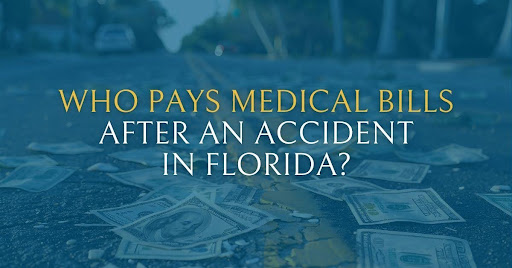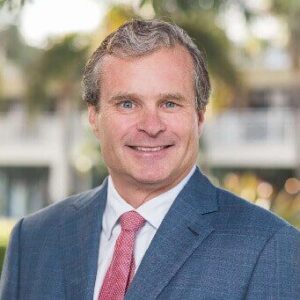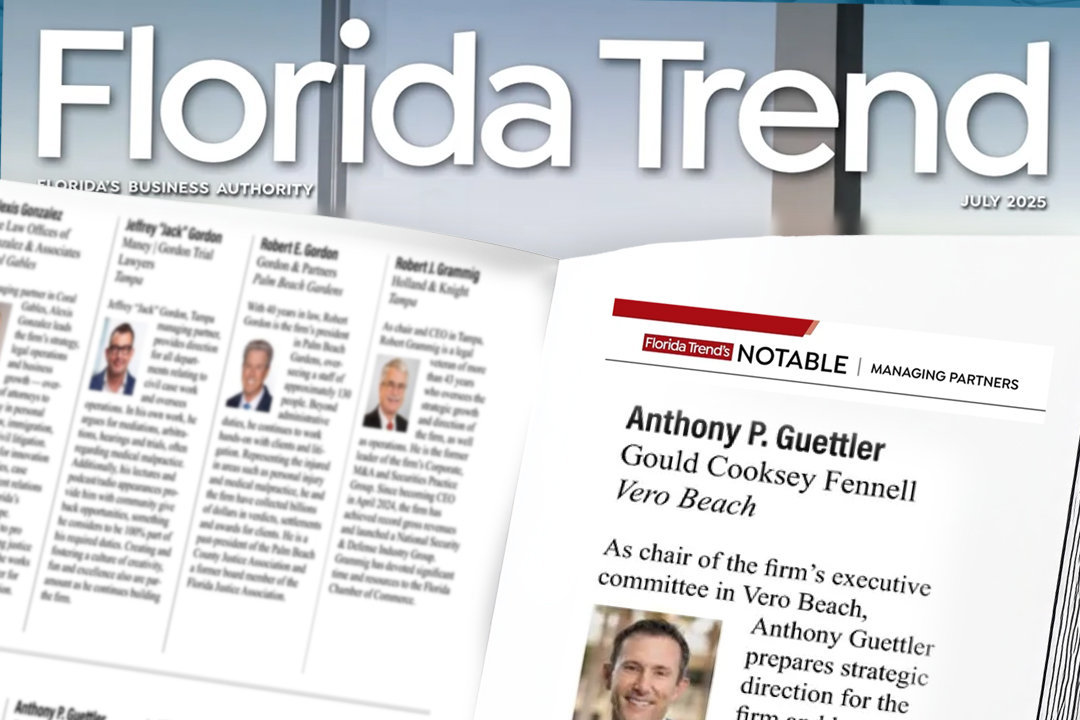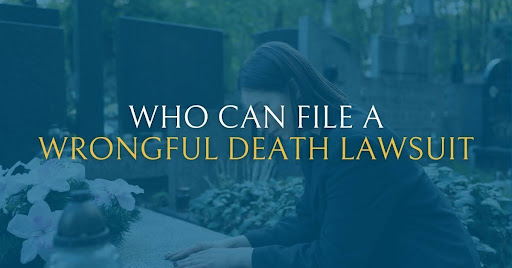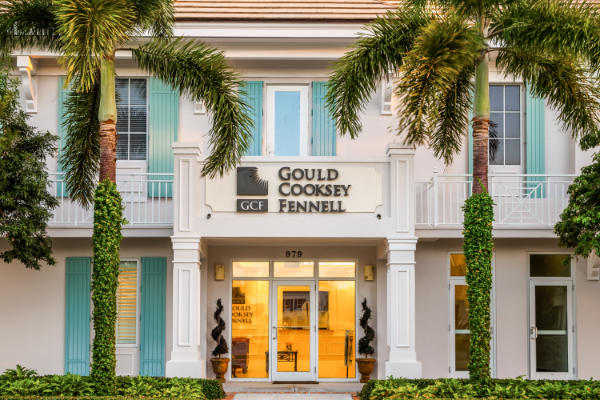Motor vehicle accidents are a leading cause of injury and death in the United States. Depending on the severity of your accident, you might be diagnosed with whiplash, broken bones, internal organ damage, traumatic brain injury, and even paralysis. All of these injuries will require medical treatment, which can be costly.
As a no-fault state, accident victims in Florida must first seek coverage for medical bills through their own insurance policy. If they suffered a major injury, then they may pursue a lawsuit with the help of our Vero Beach car accident lawyers. In some cases, accident victims may even be able to file a claim with their own insurer under an uninsured/underinsured motorist policy.
At Gould Cooksey Fennell, we know that medical bills after an auto accident can be overwhelming. Our goal is to help our clients get the compensation that they deserve for all of their losses – including medical expenses. Reach out to our law offices today to schedule a free consultation with a Vero Beach personal injury attorney.
Understanding PIP Coverage
Florida is a no-fault state. No-fault is a type of insurance system where all drivers are required to carry personal injury protection (PIP) insurance. This PIP policy will pay for certain expenses after a motor vehicle accident – regardless of who was at fault.
The goal of a no-fault system is to make sure that an accident victim’s medical bills and lost wages are paid without having to go to court or even determine fault. It also reduces strain on the legal system because many smaller motor vehicle accident claims can be handled without litigation.
However, PIP coverage is limited. It will pay:
- Up to 80% of your reasonable and necessary medical expenses related to an accident;
- Up to 60% of your lost or reduced income due to an accident; and
- Death benefits in the amount of $5,000
All Florida drivers are required to carry a minimum of $10,000 in PIP, although you can opt for a higher level of coverage. This policy will pay for expenses up to the policy limits. For example, if you have $10,000 in PIP coverage, then the maximum amount of compensation that you can access under this policy is $10,000 (even if your medical bills and lost wages are much greater than this amount.
PIP does make it easier to ensure that some of your medical bills are covered after an accident because you do not have to worry about proving fault. However, you must seek initial treatment for your injuries within 14 days of the accident. If you don’t see a doctor within the first 2 weeks after an accident, then your insurance company will deny the claim.
Under these laws, your own insurance company – through your PIP coverage – will pay for 80% of your initial medical bills, up to your policy limits. If your medical bills exceed your policy limits, then you may want to pursue a lawsuit with the help of a Vero Beach car accident attorney.
Filing a Personal Injury Claim
In many cases, a person’s medical bills far exceed the limits of their PIP coverage. If you have ever looked at an itemized statement from your insurance company, you will understand how easy it is to rack up more than $10,000 in medical bills. So what happens if your bills are greater than your PIP policy?
Under Florida law, you can file a lawsuit against the at-fault driver for your losses if you suffered a “serious injury” in a car accident. A serious injury is:
- A significant and permanent loss of an important bodily function;
- A permanent injury within a reasonable degree of medical probability;
- Significant and permanent scarring or disfigurement; or
- Death.
If you have a serious injury, then you can pursue a personal injury case. To win a personal injury claim, you will need to prove that the at-fault driver acted negligently, intentionally, or recklessly.
Most car accident cases are based on a theory of negligence, which is a type of carelessness. A person is negligent if they fail to use the level of care that a reasonable person would in a similar situation. For example, a person might be negligent if they speed, run a red light, or fail to yield when merging onto a highway.
If you can prove that the other driver was responsible for your injuries, then they can be held liable for all of your losses. This may include 3 types of damages:
- Economic damages pay for your direct financial losses. This category includes money for medical bills, lost wages, future medical treatment, reduced earning capacity, and property damage.
- Noneconomic damages compensate you for your intangible losses. Examples of non-economic damages include pain and suffering, emotional distress, loss of enjoyment of life, scarring, mental anguish, and disfigurement.
- Punitive damages may be awarded in cases involving reckless or intentional conduct, such as a drunk driving accident. The goal of these damages is to punish a wrongdoer rather than compensate an accident victim. In Florida, punitive damages are capped at the greater of $500,000 or 3 times compensatory (economic plus noneconomic) damages).
As you can see, a personal injury lawsuit may result in recovering more than just your remaining medical bills. You may also recover money for all of your losses related to the accident – which may be a significant amount of money.
Of course, insurance companies don’t want to pay out on personal injury claims – so it’s in their best interests to make sure that your injuries are classified as “serious.” Our experienced Vero Beach car accident attorneys won’t simply accept what the insurance companies say. We will thoroughly investigate your case, work with experts, and fight to get you maximum compensation for your injuries.
Pursuing Additional Compensation
In some cases, the at-fault driver in a car accident only has the bare minimum insurance – or no insurance at all. In this situation, you might wonder how your medical bills will be paid. If you have uninsured/underinsured motorist (UM/UIM) coverage, then you can potentially file a claim with your own insurance company.
Florida law only requires motorists to have $10,000 in PIP and $10,000 in property damage liability (PDL) coverage. Unless a vehicle is registered as a taxi, the driver is not required to carry bodily injury liability (BIL) coverage. This means that the driver that hit you might not have any insurance coverage to pay for your medical bills.
This leads to the third option for seeking compensation for your medical expenses: UM/UIM coverage. While this type of insurance isn’t required in Florida, many drivers opt for UM/UIM when purchasing car insurance. If you have this type of policy, then if you are hit by a driver who either doesn’t have insurance – or doesn’t have enough insurance to cover your expenses – then you could file a claim with your own insurer.
Medical bills can easily pile up after a car accident. By exploring all options available to you, from PIP to a lawsuit to a UM/UIM claim, your Vero Beach car accident attorney can make sure that you get the money that you need to move forward with your life after an accident.
How Our Law Firm Can Help
Car accidents can be devastating – physically, emotionally, and financially. Accident victims should not have to worry about how they are going to pay for the medical treatment that they need to get back on their feet. We will advocate for you and help you get the compensation that you deserve for your injuries – including coverage for your medical bills.
From our law offices in Indian River County, Gould Cooksey Fennell helps people who have been hurt in motorcycle accidents, truck accidents, car crashes, and other types of accidents. We offer free initial consultations and never charge a fee unless we recover money for you. To learn more or to talk to a Vero Beach car accident lawyer, give our law offices a call at 772-231-1100 or fill out our online contact form.
Will My Health Insurance Pay for My Medical Bills After a Florida Car Accident?
Florida drivers are required to have PIP coverage, so your own car insurance company will pay for your initial medical bills. Your health insurance might pay for certain expenses, although you may still be responsible for co-pays and deductibles. Your health insurance company may also require you to pursue compensation from the at-fault driver so that their own expenses will be covered. This is why many intake forms at doctor’s offices and hospitals ask if your visit is related to an accident or work-related injury.
If someone else caused your accident, our law firm can help you get the compensation that you deserve for your injuries. Contact Gould Cooksey Fennell today to schedule a free consultation with a Vero Beach car accident attorney.
Will PIP Coverage Pay All of My Medical Bills?
No. Regardless of your policy limits, PIP will only pay for 80% of your reasonable and necessary medical expenses. You may be responsible for the remaining 20% of these costs – plus any bills that are greater than your PIP coverage. If another driver caused your accident, a personal injury lawsuit can help you get the money that you need to cover these and other losses.
At Gould Cooksey Fennell, we fight for the rights of accident victims in and around Florida’s Treasure Coast. Reach out today to schedule a free consultation with a Vero Beach personal injury attorney.
What Happens If I Don’t See a Doctor Right Away After an Accident?
In 2013, Florida law changed when it comes to PIP coverage. Under these laws, you must seek medical attention within 2 weeks (14 days) of any motor vehicle accident. While you don’t have to go to the emergency room, you do have to get medical care during this time period. If you don’t, then your insurance company will not cover your medical bills.
For this reason, even if you think that you are OK, you should always go get checked out by a doctor if you have been in a car crash. Doing so protects your rights – and ensures that you can seek PIP coverage for your medical bills. Contact Gould Cooksey Fennell today to schedule a free consultation with a Vero Beach car accident attorney.online contact form.
Related:
Can You Sue a Doctor for a Misdiagnosis in Florida?
Can Physical Therapy Increase Your Settlement?
Florida Wrongful Death Cases Statute of Limitations
Wrongful Death Lawsuits in Florida


